Compatible x Watch series 8 and Ultra
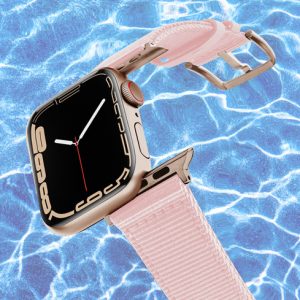
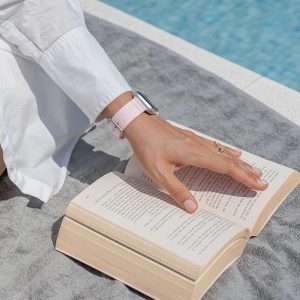 Shop Now
Shop Now Starfish
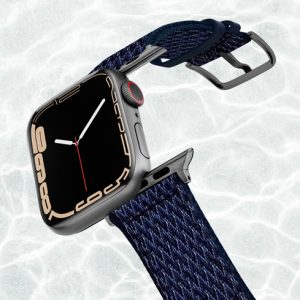
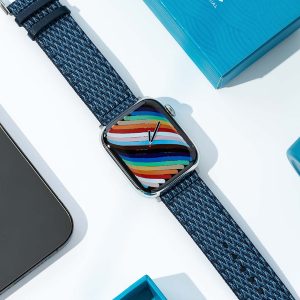 Shop Now
Shop Now Waves
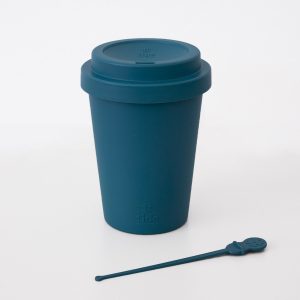
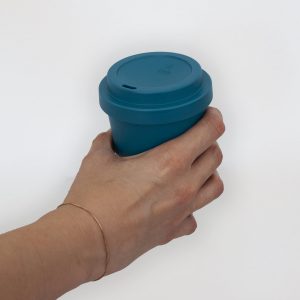 Add to cart
Add to cart Eco Cup
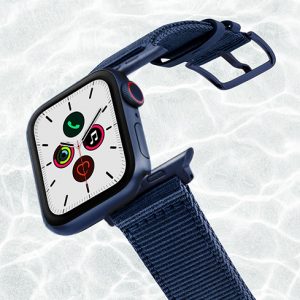
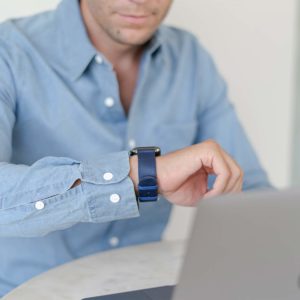 Shop Now
Shop Now Blue Marine
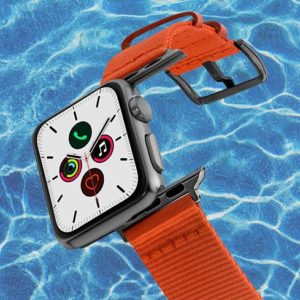
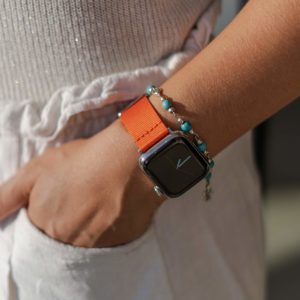 Shop Now
Shop Now Reef
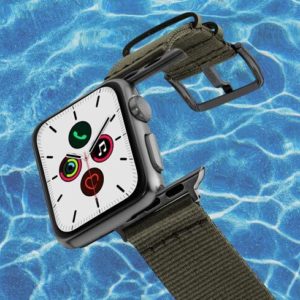
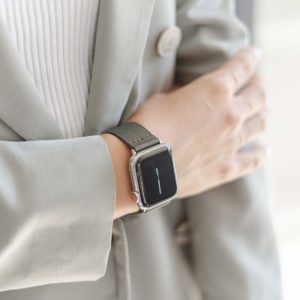 Shop Now
Shop Now Green Island
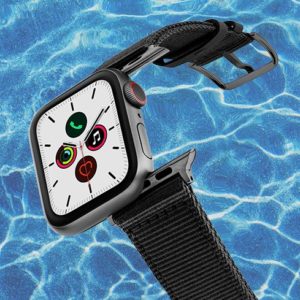
 Shop Now
Shop Now Whale Tail
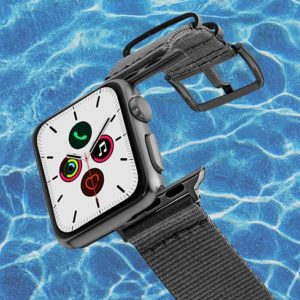
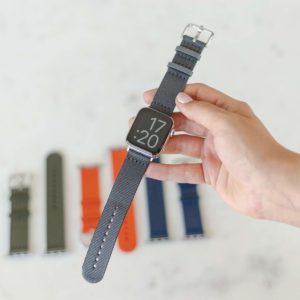 Shop Now
Shop Now Pacific Stone
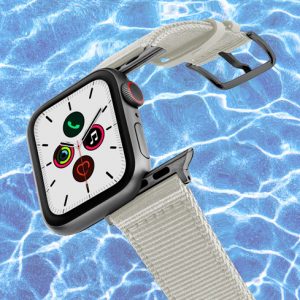
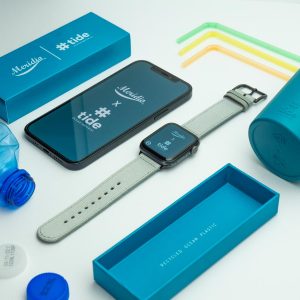 Shop Now
Shop Now Grey Cliff
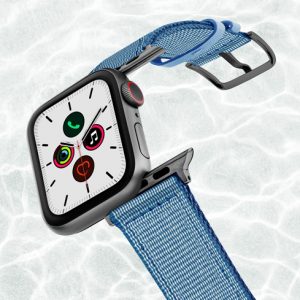
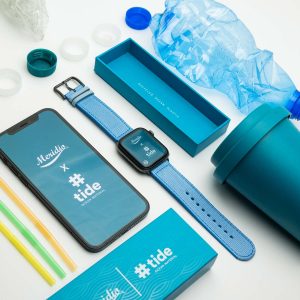 Shop Now
Shop Now Blue Lagoon
Did you know….
Eight million metric tons of plastic are dump into the oceans each year. That’s about 17.6 billion pounds – or the equivalent of nearly 57,000 blue whales – every single year. By 2050, ocean plastic will outweigh all of the ocean’s fish.
The majority of the waste that enters the ocean each year is plastic, and it is there to stay. Plastic in the ocean has been noticed since 1970s. For years already the studies have shown that the problem is not aesthetic anymore. Exposed to saltwater and sun, the debris shred into tiny pieces that become coated with toxic substances like PCBs and other pollutants, irreversibly damaging the marine food chain.
While improving the waste management ashore is the most effective solution to lessen the effects of the pollution in the ocean, the ocean cleanup is one of the most important maritime initiatives.
The marine debris accumulate in five ocean garbage patches known as well as gyres: The North Atlantic Gyre, the South Atlantic Gyre, the North Pacific Gyre (known as well as the Great Pacific garbage patch or Pacific trash vortex), the South Pacific Gyre and the Indian Ocean Gyre. Read more scrolling down the web page.
Our attention is shifted especially towards the Indian ocean. Why?!
Let us introduce you to
#meridioXtide
The Andaman Sea, a part of Ocean Gyre, stands at the core of the collaboration between Meridio and #tide
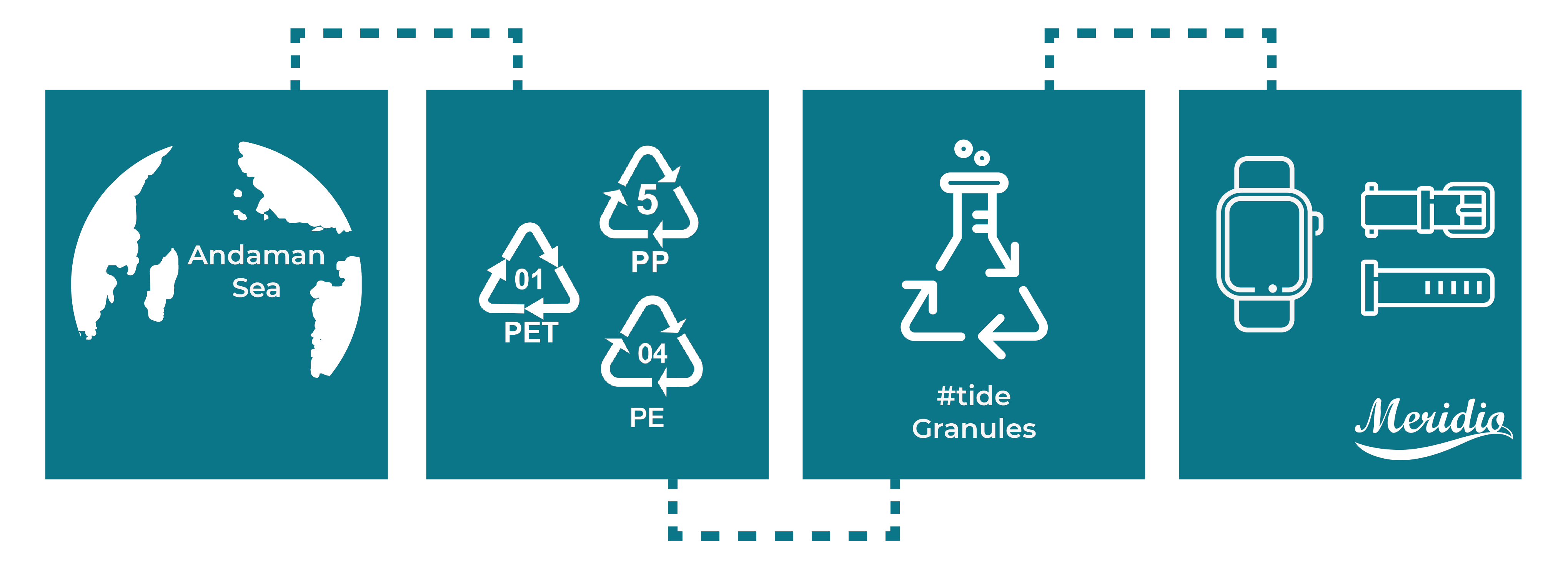
Discover our latest collection inspired by the love for the ocean.






